On the question of how the repatriation of human remains is perceived by Maori, Mr. Te Arikirangi Mamaku, Repatriation programme Coordinator | Kaitohutohu Kōiwi Tangata from Te Papa Tongarewa Museum shared the following in an email dated March 10, 2021:
"The colonial period during the 19th century in New Zealand was an extremely traumatic time for Maori. Following the New Zealand wars which saw massive and systematic confiscation of Maori lands, pillaging and theft from sacred sites of ancestral remains and sacred objects was rampant. The repatriation movement, of which Karanga Aotearoa is a part of helps Maori, Moriori, and descendant communities reconcile that painful past."
The repatriation of the Maori human remains to Aotearoa, New Zealand, took place in May 2015, and they were ceremoniously received in New Zealand. A traditional powhiri (welcome ceremony) was held to honor the ancestors. The ceremony included aspects of a tangihanga (traditional Maori funeral). Respect was paid to the ancestors as they lay on woven mats and covered with traditional cloaks. Members and representatives of the descendants and local iwi (ethnic groups), accompanied by government and museum officials, welcomed the ancestors home.
After the ceremony, the ancestors were placed in a wahi tapu (sacred camp). They are currently in the care of the Te Papa Tongarewa Museum. In order to be able to repatriate and bury them in their home community, an origin research of the human remains has been carried out since 2015. The already advanced discussions and negotiations with the communities of origin make a possible return home in the near future likely. The repatriation of the human remains helps Maori to come to terms with the trauma they suffered during the colonial period and to reconcile their descendants with the past and honor those who died. The connection between past and present are central to the Maori collective memory.
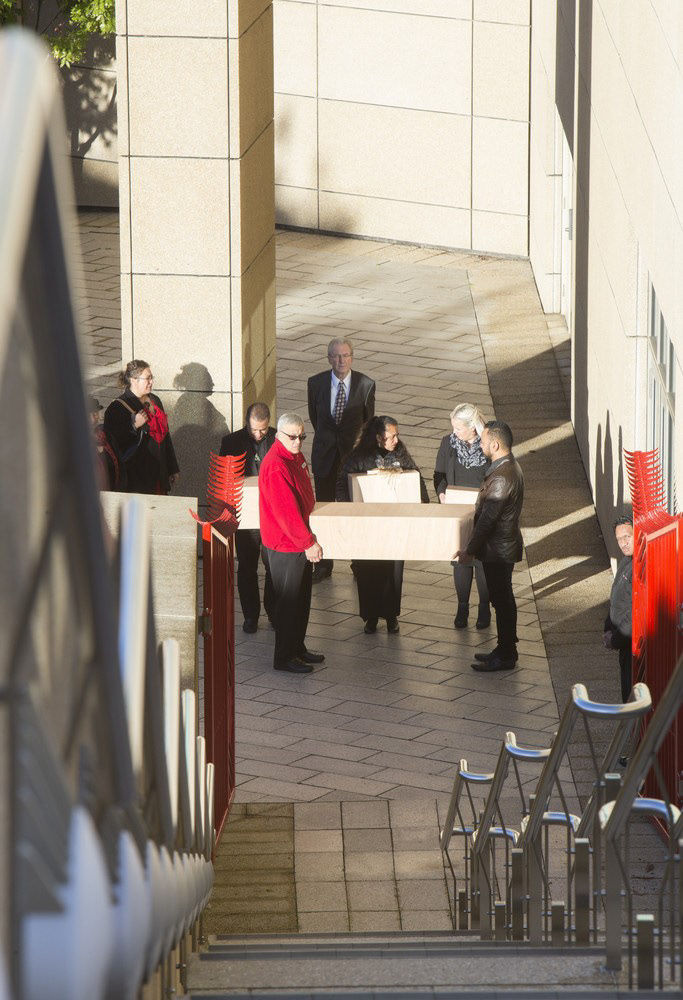
Representatives of the Te Papa Tongarewa repatriation program and the Austrian government with the tupuna (ancestors) are waiting to be greeted by Br. Marae Rongomaraeroa. To see: Moana Parata, Te Herekiekie Herewini, Te Arikirangi Mamaku, Amber Aranui, and Austrian Consul General Peter Diessl. Photo by Kate Whitley, May 25, 2015. te Papa
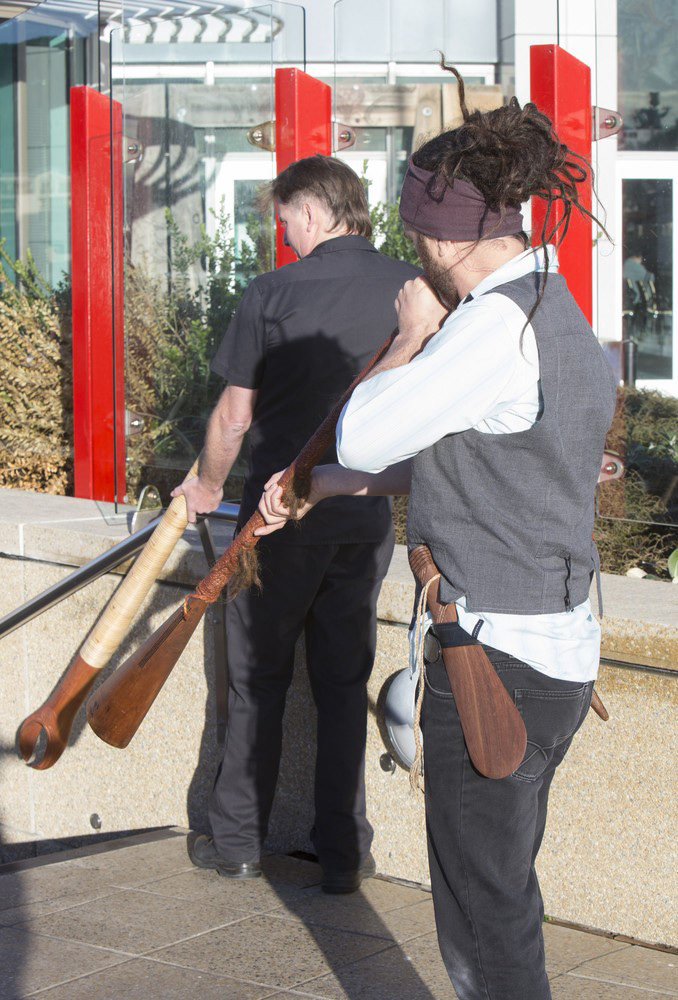
Te Papa Tongarewa staff use a taonga paoro and a pukaea, traditional Maori instruments, to signal the start of powhiri (the welcoming ceremony). Featured: Shane Pasene, Allan Baird-Smith. Photo by Kate Whitley, May 25, 2015.Te Papa
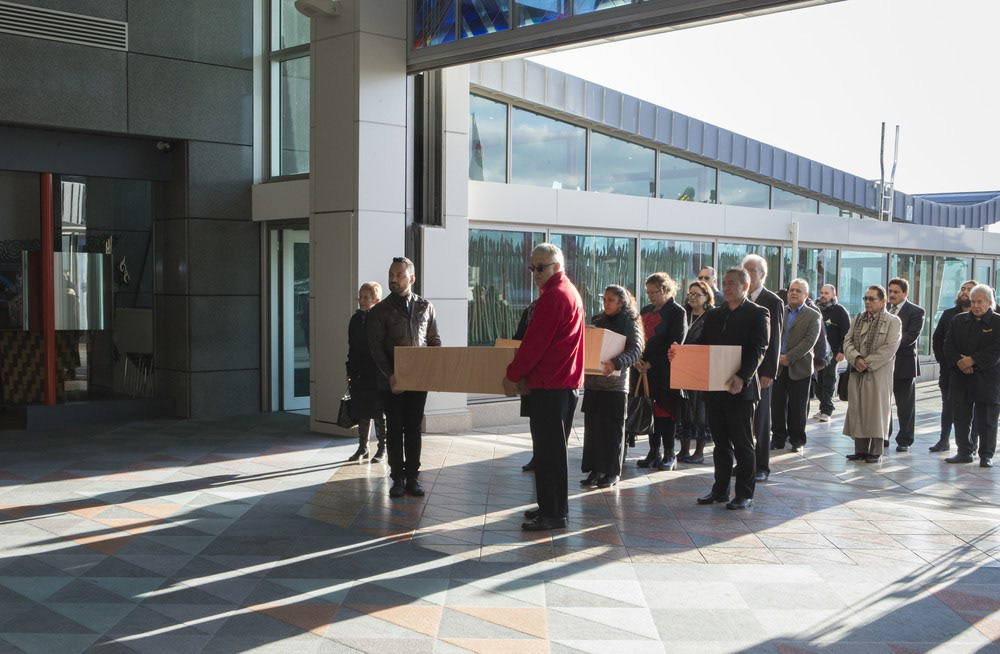
The tupuna (ancestors) will be accompanied to Rongomaraeroa by representatives from Te Papa Tongarewa, the Kranga Aotearoa Repatriation Advisory Panel, the Austrian government, and elders and community members. To see: Ratau Turner, Te Arikirangi Mamaku, Rangimoana Taylor, Moana Parata, Te Herekiekie Herewini, Miria Pomare, Aroha Mead, Hami Piripi, Pou Temara, Arapata Hakiwai, Taki Turner. Photo by Kate Whitley, May 25, 2015. te Papa
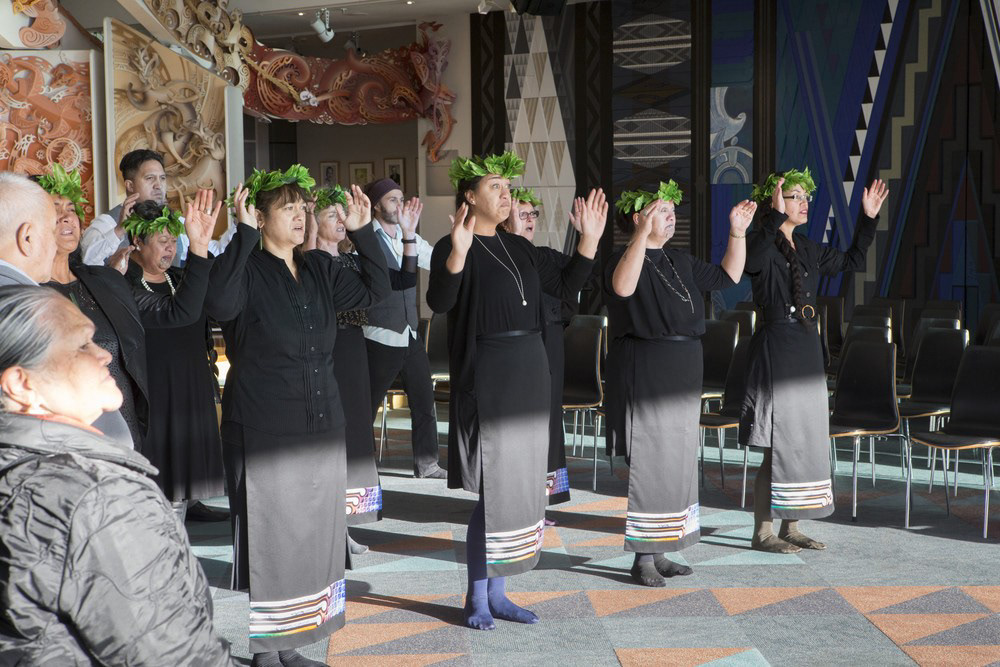
Te Papa Tongarewa staff members deliver an emotional haka powhiri (ceremonial welcome) to the tupuna (ancestors) and welcome them home to Aotearoa, New Zealand. Featured: Hema Temara, Paora Tibble, Hokimate Harwood, Shane James, Mona Pauline Mangakahia, Chrissie Locke, Rhonda Paku, Mere Boynton. Photo by Kate Whitley, May 25, 2015. te Papa
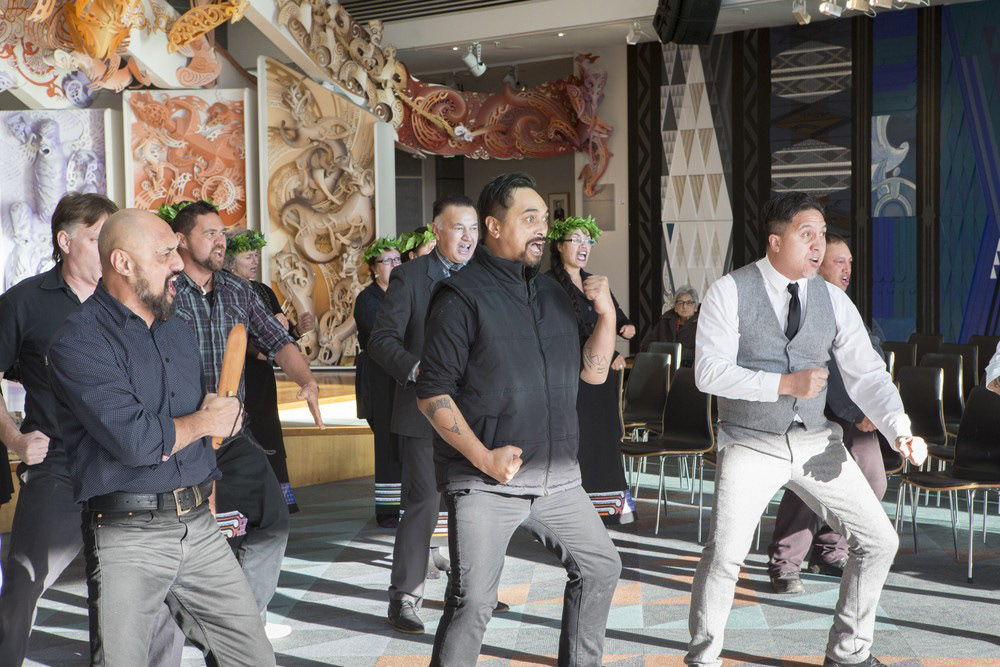
Te Papa Tongarewa staff deliver an emotional haka powhiri (ceremonial welcome) to the tupuna (ancestors) and welcome them home to Aotearoa, New Zealand. Featured: Shane Pasene, Te Wari Carkeek, 'unknowing' ,Ati Teepa, Mere Boynton, Paora Tibble,'unknowing'. Photo by Kate Whitley, May 25, 2015.Te Papa
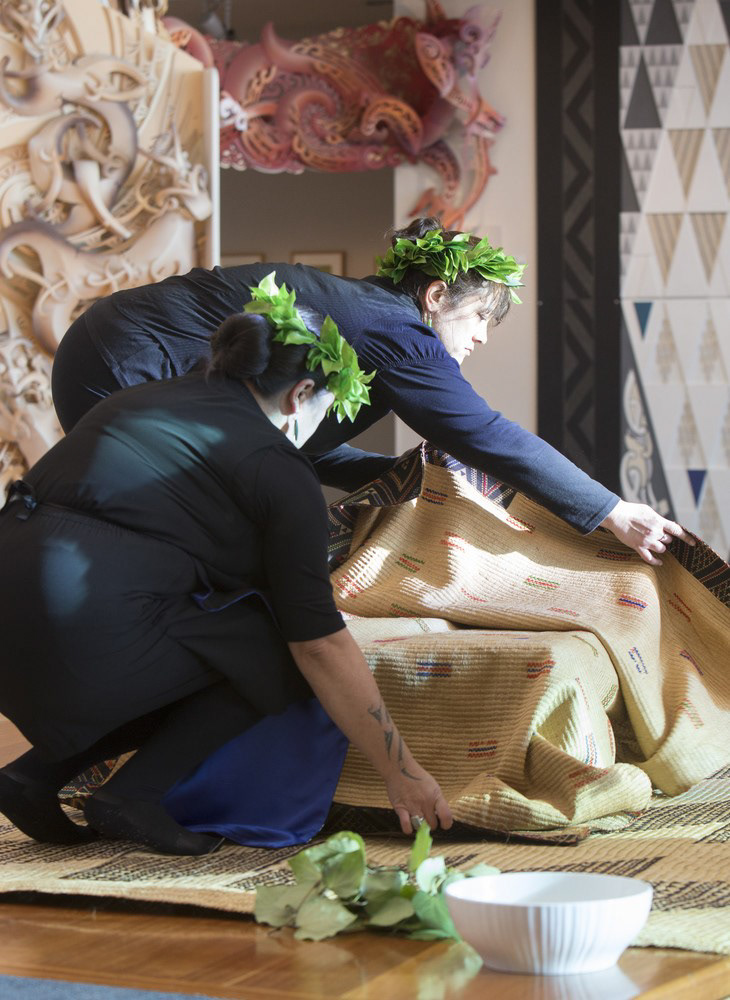
Throughout the ceremony, the tupuna (ancestors) are placed on the whariki (traditional woven mat) and kakahu (traditional woven cloaks) are draped over them. To see: Rhonda Paku, Hokimate Harwood. Photo by Kate Whitley, May 25, 2015. te Papa
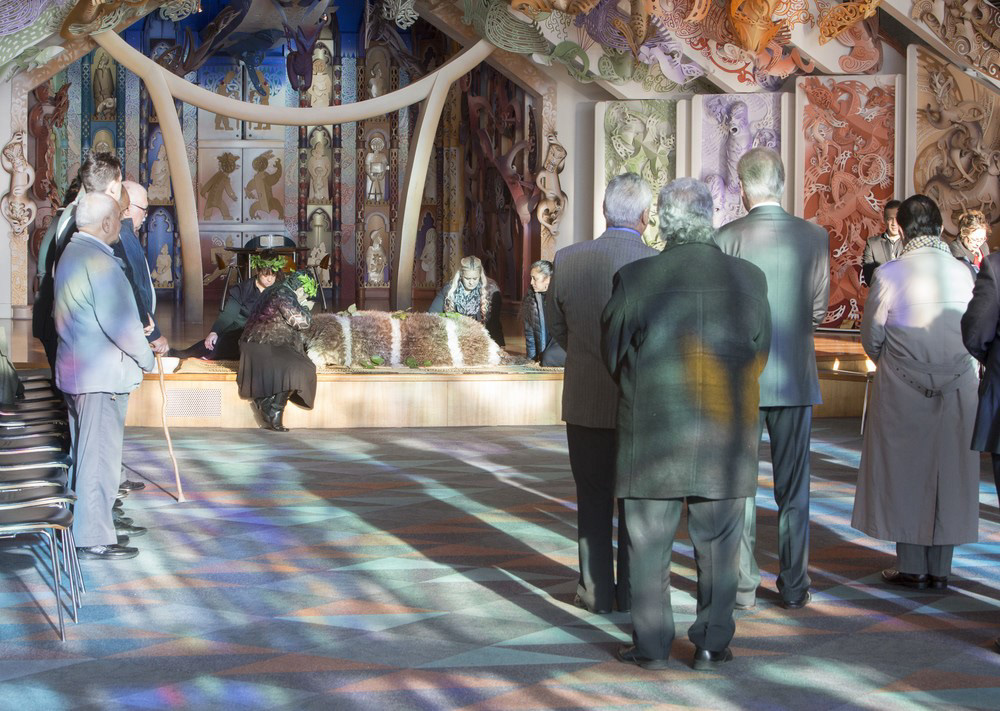
Once the ancestors are placed on the atamira (stage) and covered with the kakahu, a moment of silence is initiated to pay respect to the ancestors and their journey home. Photo by Kate Whitley, May 25, 2015. te Papa
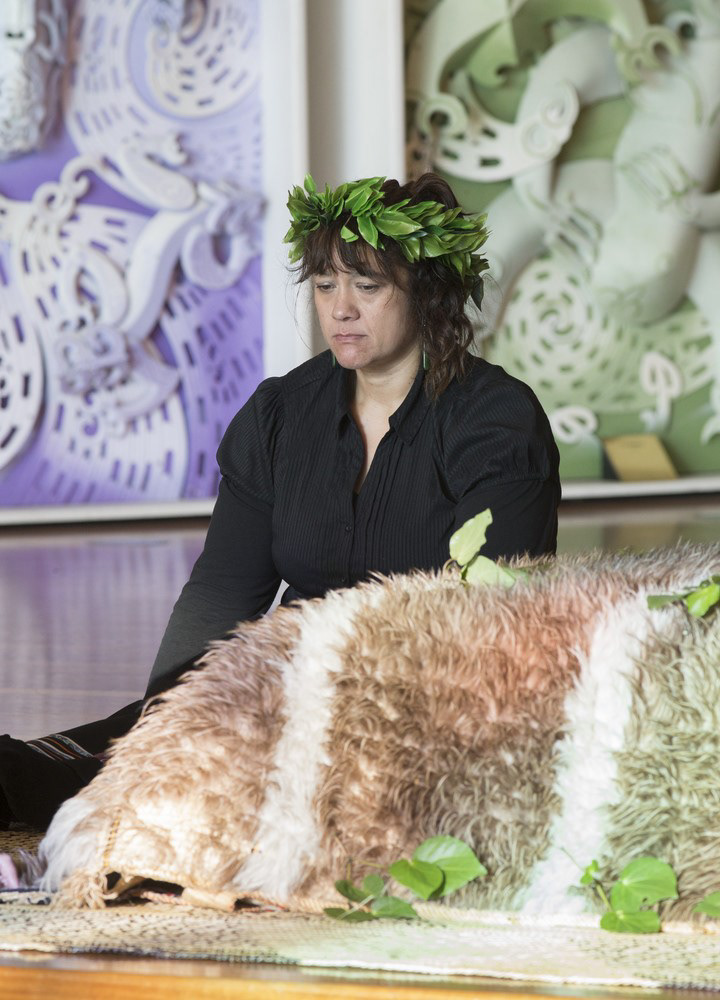
Te Papa conservator Hokimate Harwood sits with the tupuna (ancestors) during powhiri. Photo by Kate Whitley, May 25, 2015. Te Papa
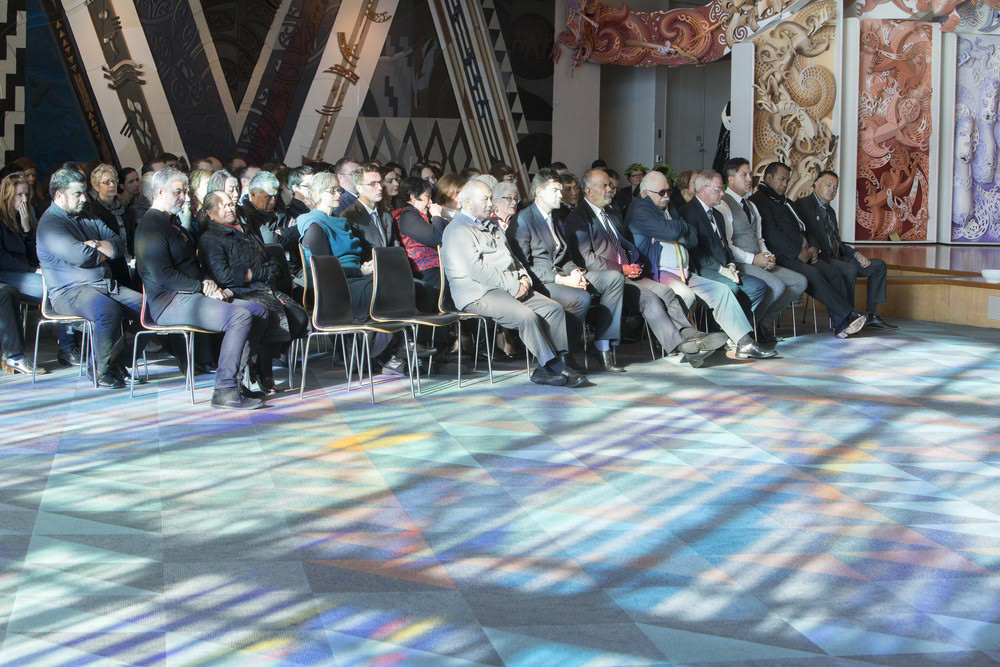
Welcome ceremony with the elders and representatives of the local iwi (groups) Te Ati Awa and Ngati Toa Rangatira with the support of Te Papa Tongarewa's leadership and staff, as well as New Zealand government officials and community representatives. Pictured: 'unknowing', Justin Lester (Mayor of Wellington), Hon. Te Ururua Flavell (Minister for Maori development), 'unknowing', Rick Ellis (Te Papa's Chief Executive, Paora Tibble (iwi development officer), Taku Parae and Te Waari Carkeek (Ngati Toa). Photo by Kate Whitley, May 25, 2015.Te Papa
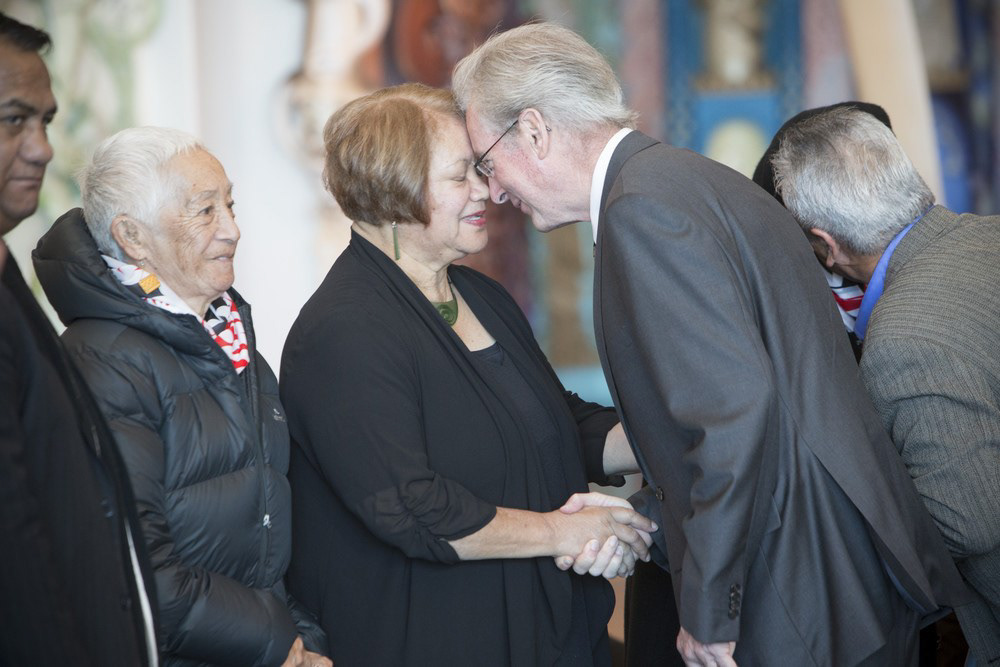
Austrian Consul General Peter Diessl and Rihia Kenny of Ngati Toa greet each other with a hongi. To see: Rihia Kenny and Peter Diessl. Photo by Kate Whitley, May 25, 2015. te Papa
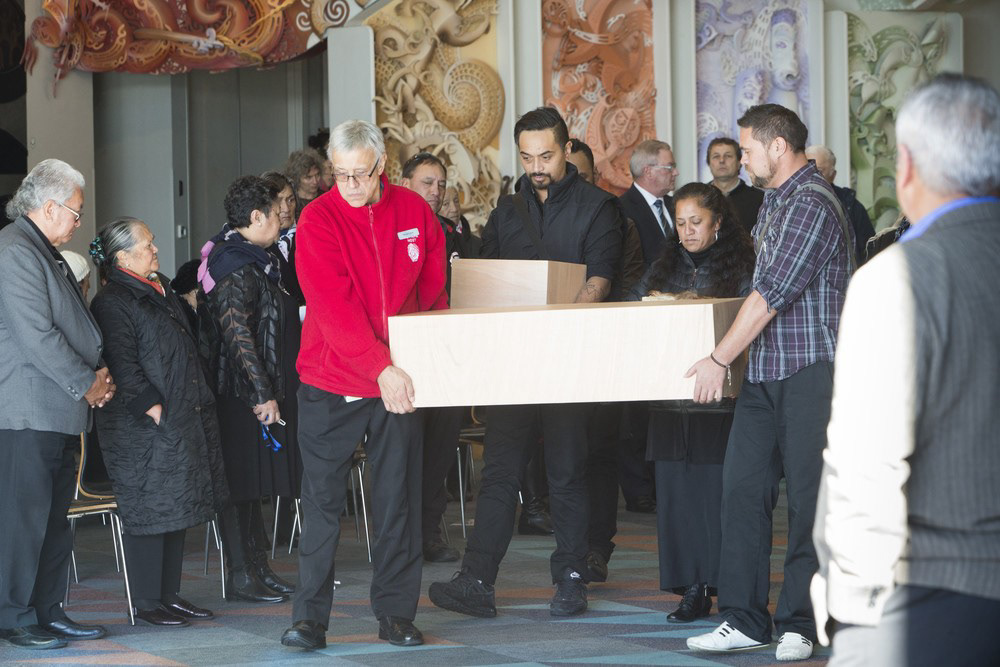
At the end of the ceremony, the tupuna (ancestors) of Rongomaraeroa are taken to the wahi tapu (sacred repository). Photo by Kate Whitley, May 25, 2015. te Papa
To listen:
Interview with Arapata Hakiwai from July 25, 2015 on the occasion of the repatriation of the human remains from the Vienna World Museum. Arapata Tamati Hakiwai is Kaihautu at Te Papa Tongarewa Museum and leads the museum's Matauranga Maori and iwi engagement.
